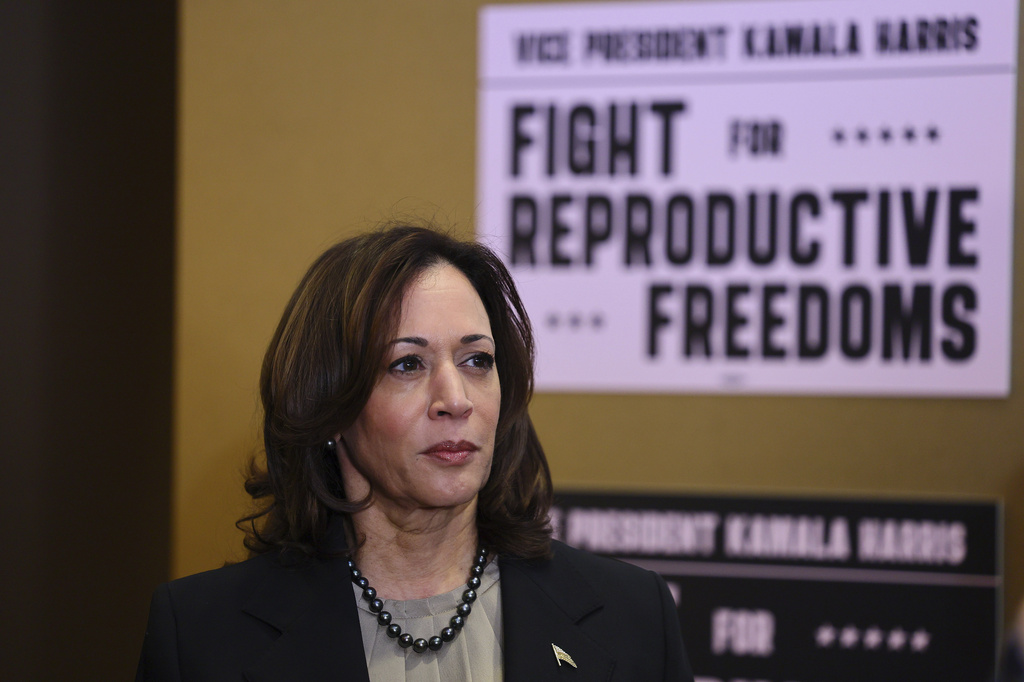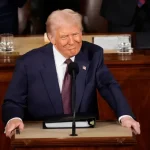
Vice President Kamala Harris hosted a convening of criminal justice reform advocates at the White House to discuss President Joe Biden‘s efforts to decriminalize marijuana and expunge criminal records for simple possession.
Rapper Fat Joe, Gov. Andy Beshear (D-KY), and White House Office of Public Engagement Stephen Benjamin joined Harris in the discussion, where the vice president firmly stated that “nobody should have to go to jail for smoking weed.”
“I believe that the promise of America includes equal justice under the law, and, for too many, our criminal justice system has failed to live up to that core principle. I say that with full knowledge of how the system has worked, including my experience as a prosecutor,” she stated at the top of her remarks on Friday. “What we need to do is recognize that far too many people have been sent to jail for simple marijuana possession, and the impact is such that, in particular, black Americans and Latinos are four times more likely — four times more likely — to be arrested for marijuana possession, and the disparity is even larger when you talk about a subset of black men and Latino men. So this is an issue that must be addressed.”
However, Harris’ own public position on marijuana has shifted dramatically over her political career.

In 2010, while serving as the District Attorney for San Francisco, Harris opposed a proposition that would have legalized marijuana use in the state of California. That effort failed, but the state would go on to legalize marijuana use and possession in 2016, the same year Harris, then the state Attorney General, was elected to the U.S. Senate.
Harris served as San Francisco D.A. from 2004-2011, over which time her office oversaw more than 1,900 marijuana-related convictions, though those convictions resulted in state prison incarcerations at a significantly lower rate than her predecessor. Harris’s district attorney successor, George Gascon, eventually expunged the records of all marijuana offenses dating back to 1975.
The vice president first started publicly advocating marijuana reform during her time in the Senate. In 2017, she co-sponsored the SAFE Banking Act, which would have provided access to the U.S. banking system for legal marijuana dispensaries and grow-ops. The following year, she endorsed legislation that would have removed marijuana from the Controlled Substances Act and given states more options in determining their own marijuana policies.
The run-up to her 2020 Democratic presidential primary bid saw Harris take an even more vocal position on legalization. She told hosts of The Breakfast Club in 2019 that she smoked marijuana in college, which she would later detail in greater length in her memoir, continued to back bills that would have benefited marijuana offenders, and pressured then-U.S. Attorney General Merrick Garland to allow extensive research of marijuana’s medical properties.
Still, her shift on the issue caused her political headaches during her 2020 campaign, from both the Left and the Right.
Former President Donald Trump, then the incumbent in the White House, claimed Harris lied about her marijuana use in college. In her 2019 Breakfast Club interview, Harris claimed that she listened to Snoop Dogg and Tupac while smoking, yet neither rapper released an album until after she graduated, bringing some to question her story.
Meanwhile, marijuana reform advocates claimed that Harris, while running for her state offices, accepted campaign contributions from legalization and criminal justice reform groups but failed to make good on her promises to those groups after being elected.
“From a cannabis reform POV, [Biden] just made the worst pick possible,” Steve DeAngelo, founder of the criminal justice reform group Last Prisoner Project, tweeted after the president tapped Harris to be his running mate. ” Cannabis voters should know that Harris took money and support from us in her race for CA AG, then did zero to defend CA when the DOJ attacked us. Then she laughed about it.”
As of 2023, 70% believe that marijuana should be legalized in the United States, according to polling conducted by Gallup. That number rises to 80% among those under the age of 35, and the president himself raised the issue during his State of the Union address in March, marking the first time he has discussed marijuana legalization in his annual address to the nation.
CLICK HERE TO READ MORE FROM THE WASHINGTON EXAMINER
Biden vowed on the 2020 campaign trail to decriminalize marijuana and expunge convictions for simple marijuana possession. However, he has yet to make good on that promise in full.
The Drug Enforcement Agency is currently reviewing a recommendation from the Department of Health and Human Services to reclassify marijuana from Schedule I to a Schedule III substance.






